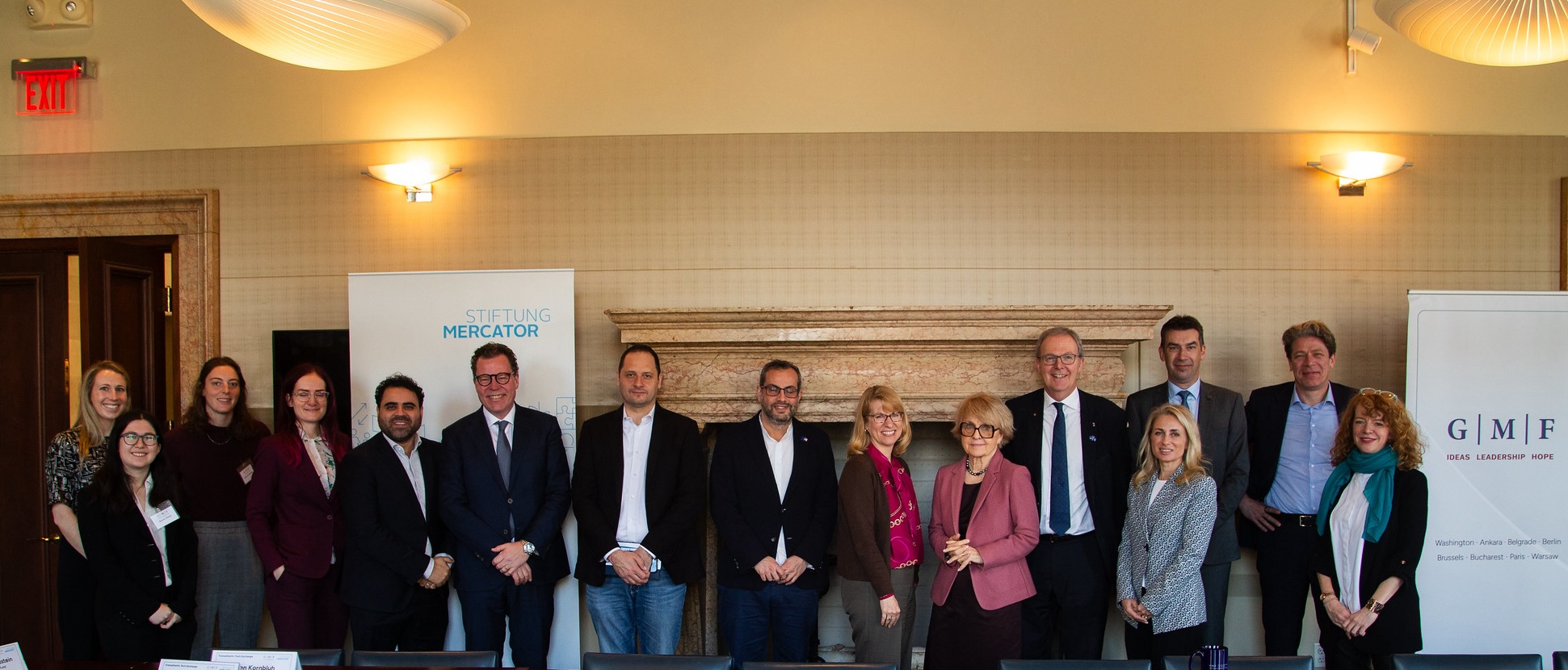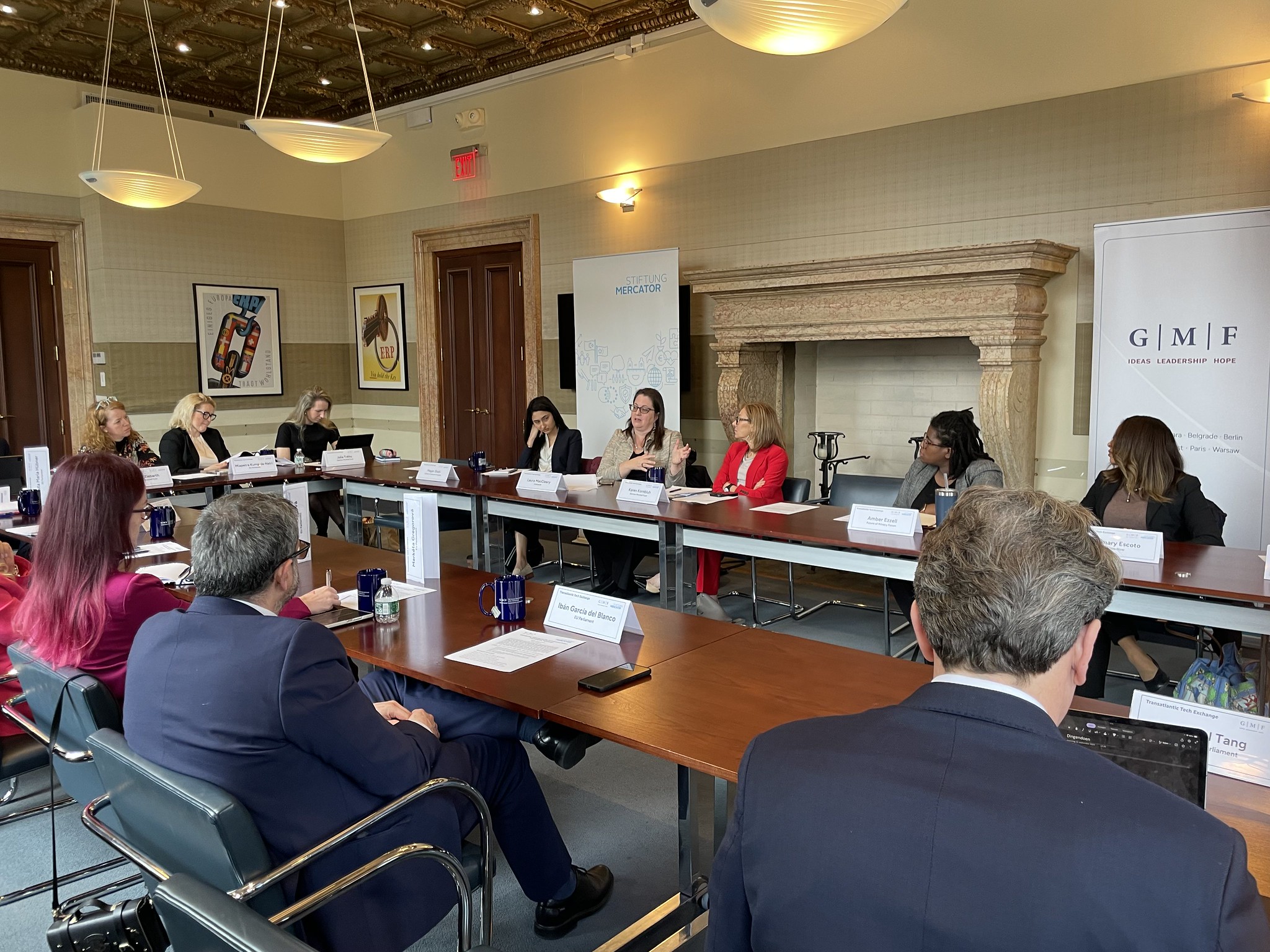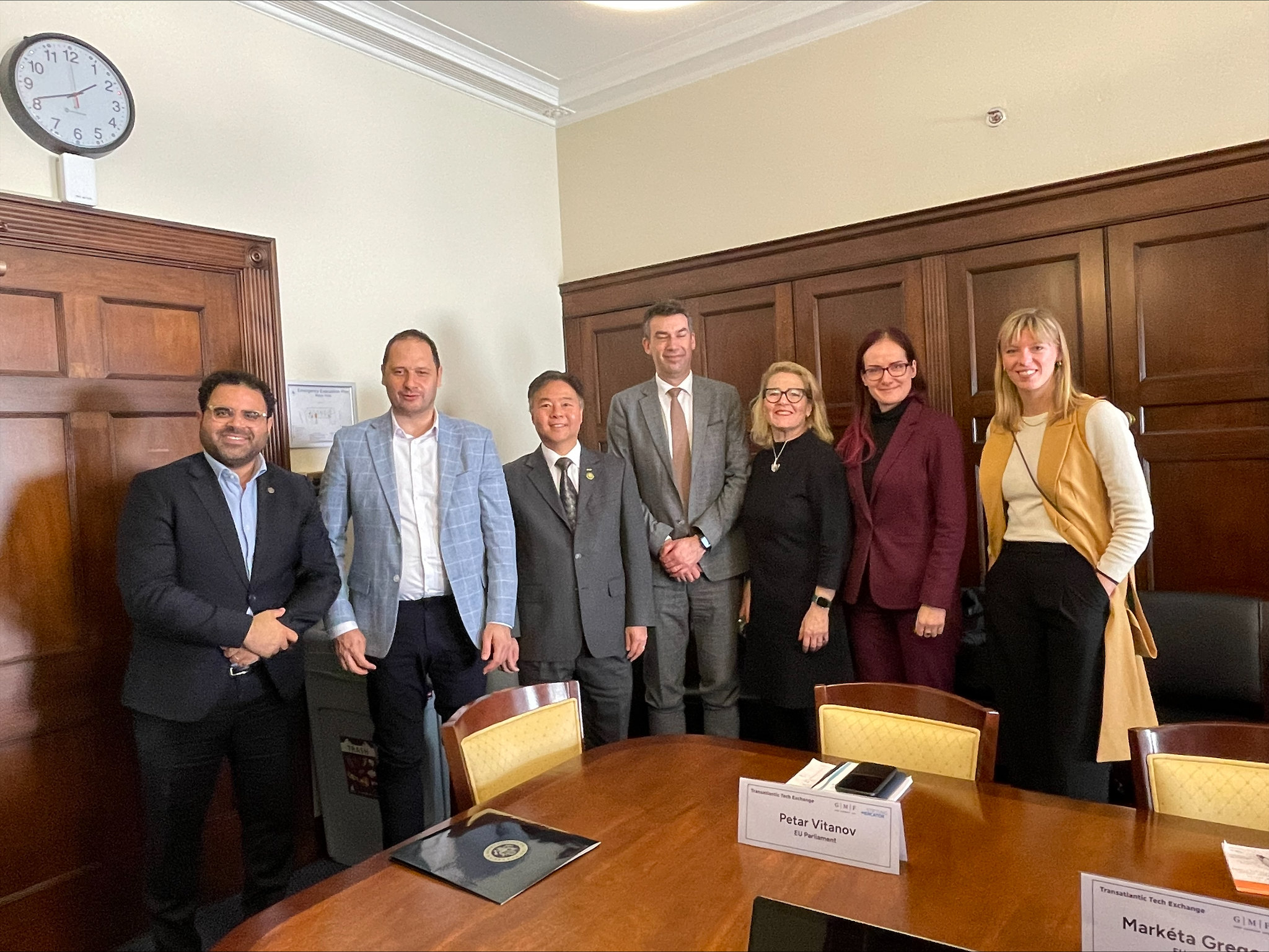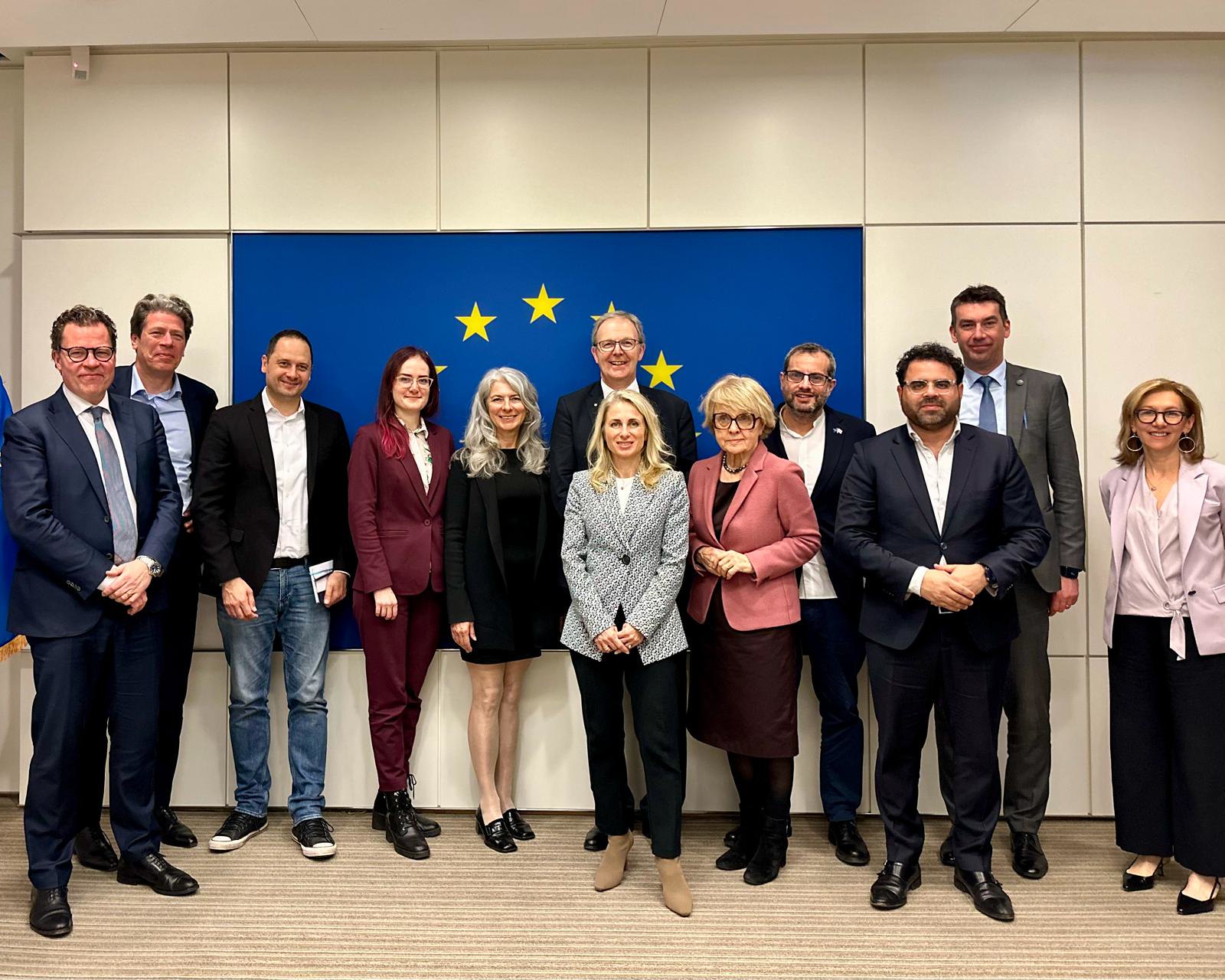Tech Policy in Transition: Takeaways from Transatlantic Tech Exchange in Washington, DC

Four takeaways emerged from the conversations in Washington, DC:
-
The AI executive order (EO) may be “stickier” than expected.
At nearly all their meetings, the delegation discussed the White House’s recent landmark AI EO and questioned whether it might be reversed under a new presidential administration. Some US officials emphasized that the EO was designed to create lasting changes that would not be easily rescinded. New chief AI officer roles established by the order in each federal agency, for example, could be difficult to eliminate due to federal government employee protections. In addition, bipartisan consensus on some sections of the EO, such as guidelines on federal AI use and procurement standards to safeguard national security, may protect those sections, even if Donald Trump returns to the Oval Office.

Roundtable on AI policy with civil society representatives. -
In a slow-moving Congress, “China” and “children” offer ways to reach bipartisan agreement.
The current Congress has so far introduced 315 bills aimed at regulating science, technology, and communications. However, staffers expressed pessimism about final approval of any of them. MEPs asked the interlocutors which were most likely to pass, and one speaker quipped that a bill needed to be related to China or children to gain even committee approval. The joke alluded to two categories of technology legislation that have bipartisan support, a rarity in the current political climate. In the first category are two data protection bills dealing with national security threats posed by China. One aims to force TikTok’s parent company to sell the platform while the other places restrictions on data brokers. Both quickly advanced through the House of Representatives and were signed by President Joe Biden on April 24, after the tour’s conclusion, reinforcing this takeaway. In the second category is legislation on children’s privacy that was introduced in Congress, garnering major congressional and media attention even before legislators have begun debating comprehensive privacy protections.

The delegation meets with Representative Ted Lieu, Democrat of California (third from left). -
Members of Congress support a federal privacy standard, yet they remain uncertain if a bill on it will pass.
Many EU citizens are accustomed to personal data rights stemming from the General Data Protection Regulation (GDPR), which the EU adopted in 2016 and which has been in force since 2018. In contrast, the United States lacks a national standard for data privacy protection. In their meetings with the MEP delegation, US stakeholders emphasized the need for federal privacy rules as a prerequisite for other digital legislation. Safeguarding data rights in AI models, for example, may prove difficult without comprehensive federal privacy protections.
It was striking that almost every US official mentioned the necessity of federal privacy rules while, at the time of the trip, no promising congressional bill existed to establish these protections. Some privacy activists hope state laws will spur federal action, thereby preventing companies from having to navigate disparate rules among states. On April 7, Senator Maria Cantwell and Representative Cathy McMorris Rodgers, both Democrats from Washington, published a draft discussion text for the American Privacy Rights Act, which is the first federal privacy bill introduced in this Congress. However, key challenges remain, including defining platforms’ duty of care; potential preemption of state laws, such as a California statute that creates a data broker registry and ensures stronger consumer data protections than the proposed federal bill; and consumers’ private right of action.

The delegation meets with Deirdre Mulligan, deputy US chief technology officer in the White House Office of Science and Technology Policy (fifth from left). -
Future transatlantic cooperation in digital policy is possible regardless of the US presidential election outcome.
Participants hoped that ongoing exchanges on digital and AI policy could continue transatlantic collaboration regardless of US election results. The MEP delegation mentioned initiatives such as the EU-US Trade and Technology Council that are intended to facilitate digital policy alignment and expressed hope that the body would translate technical discourse into actionable policy. Other opportunities for transatlantic exchanges include the Transatlantic Legislative Dialogue, organized by the European Parliament and the House of Representatives, and the Transatlantic Policy Network, a nonpartisan education network that facilitates dialogue between EU and US stakeholders on transatlantic cooperation.
The delegation discussed with their US counterparts areas of collaboration, such as assessing the potential of shared data resources to bolster AI development; enhancing cyber capacities in partner countries through joint initiatives and by developing secure information and communications technology infrastructure; and discussing solutions, such as pooled hiring or upskilling programs, to workforce challenges for technical government positions.
MEPs learned during the second half of their programs, in Austin or Sacramento, about the influence of state initiatives on US federal policy discussions, and that knowledge will serve to further transatlantic exchanges on digital issues.
This text reflects the views of the authors only. The views expressed herein do not necessarily reflect those of the MEP delegation, GMF, or Stiftung Mercator.

